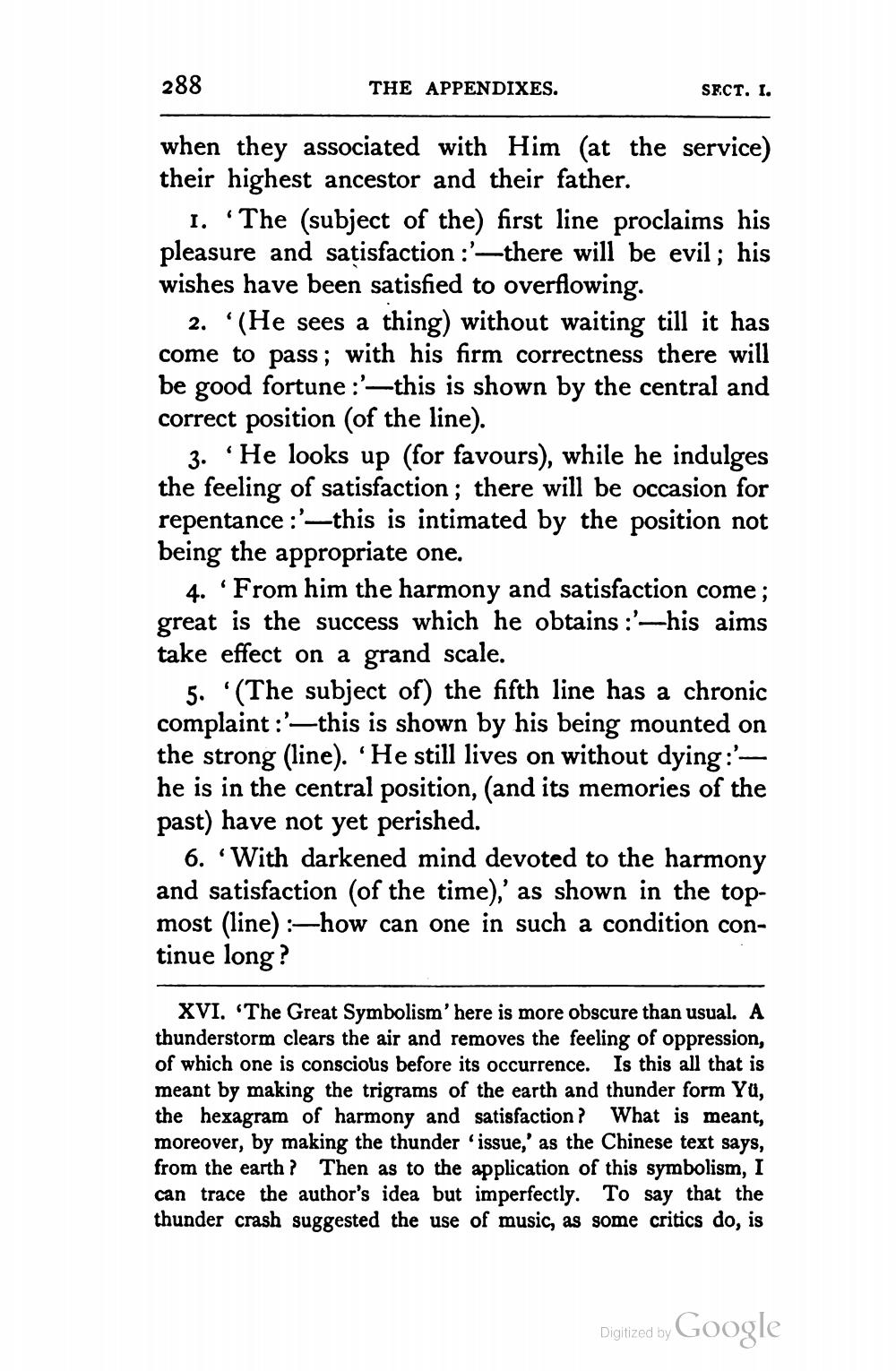________________
288
THE APPENDIXES.
SECT. I.
when they associated with Him (at the service) their highest ancestor and their father.
I. “The (subject of the first line proclaims his pleasure and satisfaction:'-there will be evil; his wishes have been satisfied to overflowing.
2. "(He sees a thing) without waiting till it has come to pass; with his firm correctness there will be good fortune :'--this is shown by the central and correct position (of the line).
3. He looks up (for favours), while he indulges the feeling of satisfaction; there will be occasion for repentance:'--this is intimated by the position not being the appropriate one.
4. 'From him the harmony and satisfaction come; great is the success which he obtains :'-his aims take effect on a grand scale.
5. (The subject of) the fifth line has a chronic complaint :'—this is shown by his being mounted on the strong (line). 'He still lives on without dying:'-- he is in the central position, (and its memories of the past) have not yet perished.
6. With darkened mind devoted to the harmony and satisfaction (of the time),' as shown in the topmost (line) :-how can one in such a condition continue long?
XVI. "The Great Symbolism' here is more obscure than usual. A thunderstorm clears the air and removes the feeling of oppression, of which one is conscious before its occurrence. Is this all that is meant by making the trigrams of the earth and thunder form Yü, the hexagram of harmony and satisfaction? What is meant, moreover, by making the thunder 'issue,' as the Chinese text says, from the earth? Then as to the application of this symbolism, I can trace the author's idea but imperfectly. To say that the thunder crash suggested the use of music, as some critics do, is
Diglized by Google




